Congratulations to NVCC student Sabrina Melendez-Rosales who was selected from a national pool of applicants as one of 80 metro-DC scholars for participation in the Summer Health Professions Education Program sponsored by the Robert Wood Johnson Foundation. Sabrina will serve as a SHPEP scholar and take part in a pre-medical enrichment program involving academics, medical school application preparation, clinical shadowing, and networking opportunities from June 6 – July 16. SHPEP is regionally hosted by Howard University Hospital and Medical School. Congratulations to Sabrina on this important next step toward becoming a medical doctor! For further information and assistance applying for the summer 2022 program, have a look at the “Opportunities For Students” section of this webpage. Applications are usually due in early March for the summer session.
Category Archives: Medical Education
Extending a warm welcome to a guest lecturer from Hungary!
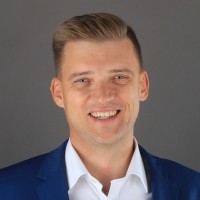
Summer Pre-Med Opportunity (Info Session) – SHPEP
Zoom Info Session: Monday, Feb 1, 6pm EST
SHPEP is a free summer enrichment program focused on improving access to information and resources for college students interested in the health professions. SHPEP’s goal is to strengthen the academic proficiency and career development of students underrepresented in the health professions while preparing them for a successful matriculation to health professions schools.
During this session, attendees will hear directly from program sites, who are reviewing applications, to learn more about what they have to offer and how they will implement the program. You’ll also receive the perspective recent SHPEP scholars to give you their insights about the program.
As you may know, due to the COVID-19 pandemic, physical distancing guidelines, and the closure of some campuses, SHPEP will again be a 100% virtual experience in summer 2021. The pandemic necessitated virtual implementation of SHPEP in 2020, and we are proud that the program was successfully delivered online to more than 930 scholars last summer.
Zoom registration here:
https://zoom.us/webinar/register/WN_aw5JnFrjRCCCF1UX_Ze6WQ?utm_source=sfmc&utm_medium=&utm_campaign=&utm_content=
NIH lecture on Artificial Intelligence in Radiology
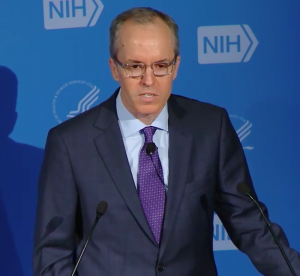
At a recent National Institutes of Health Grand Rounds Lecture in October, Curtis Langlotz, a Stanford Univ. medical doctor and bioinformatics researcher, gave a lecture detailing his work to bring artificial intelligence to radiology image interpretation. What was striking about his one-hour lecture is how his research not only involves medical expertise, but also an in-depth knowledge of computer science and linguistics. Traditionally, experts have been viewed as individuals who know much about one specific area. To be on the cutting edge of research, one often has to be an expert in multiple areas. Of course, Prof. Langlotz probably didn’t expect that his work would take him into linguistics, but interdisciplinary work requires an open mind and frequently takes detours into new and exciting areas.
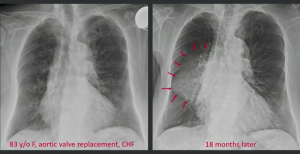
The future? A computer assisting doctors to be sure that small masses are detected before they become massive tumors!
Science Communication Seminar via Alan Alda Center for Communicating Science
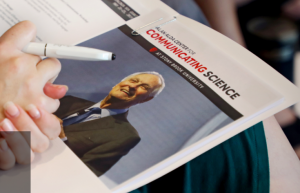
Great opportunity to attend a web conference sponsored by the Alan Alda Center for Science Communication at Stony Brook University last week. Simply amazing to be selected for this online conference. The Alda Center brought together a group of people from all over the world who all communicate about science in their work (other professors, government researchers, consultants). We spent the session engaged in a role-playing improvisation session to stimulate brainstorming. We then fruitfully discussed how to better explain science topics to audiences with varying levels of expertise. Highly recommend the Alda Center’s programs to other science teachers and anyone else who explains science as part of their everyday work. Hope to be invited back for another conference!
https://www.aldacenter.org/
Peek into medicine via “mini med school”
Want to know if you’d really like to study medicine? Want to learn more about medicine? Increasingly, medical schools are offering evening lectures for interested members of the public. Over the course of a semester and for less than $200 in fees, you’ll hear from medical experts on a variety of topics. The formats vary from the very immersive and hands on (Washington University in St. Louis)
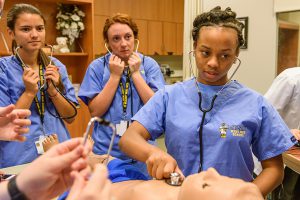
to the lecture-based (Georgetown University) and are geared toward the non-scientist. Some programs even open their doors to high school students. Links below to Washington Univ. and Georgetown Univ.
Georgetown University Medical Center Herbert B. Herscowitz Mini-Medical School Course Schedule
attend Polish medical school via U.S. non-profit
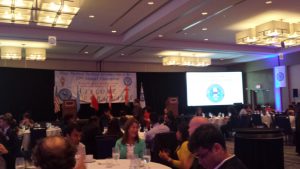
Thrilled to attend ceremonies for Hope Medical Institute (HMI) as they celebrated the medical students graduating from 3 of Poland’s leading medical schools. Working with HMI, U.S. students may apply to study medicine in Poland (with all classes conducted in English) and then complete clinical rotations back in the United States. Of course, for U.S. medical residency purposes, students are classified as foreign medical grads. However, the structure of Polish medical education (in line with European standards) allows application to Polish medical schools right out of high school, or after completing some college-level coursework. A little known option for bright students willing to study in central Europe!
www.hopemedicalinstitute.org
Summer school, for free?
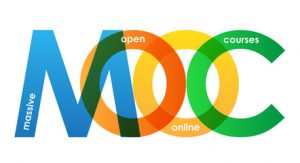
Students in class (and office hours) will recall my mentioning inexpensive online classes to supplement college/university classes and as a useful way to build skills before transfer, grad school, or med school. These Massive Open Online Courses (MOOCs) feature leading international universities with two of the largest course sources being Coursera (coursera.org) and EdX (edx.org). Whether you want to brush up on biostatistics, take a programming course, or learn about infectious disease, you will find it on either of these sites. Edukatico.org and class-central.com are 2 websites that gather listings of online courses as well as student reviews.
Improving The Medical Lecture: Lessons Learned In Hungary
![]()
Fantastic opportunity to give a talk at the AHEA (American Hungarian Educators Association) conference entitled “Optimizing the lecture in medical education: Lecturing at the Univ. of Pécs Medical School” reviewing the lessons learned from teaching medical students at the University of Pécs Medical School (PTE-AOK) in Hungary. Hungarian and US educators attending this conference from different disciplines were interested in learning how lecturing can be improved and applied to their fields. The discussion generated was engaging and plans for follow-up studies in Pécs gained momentum. A great way to share with others the fruits of a productive semester in Hungary!
AMSA 2018 – Fantastic Lectures
This year’s American Medical Student Association (AMSA) conference featured two exceptional lectures by dynamic medical educators. Gary Rose (on the admissions committee at Florida Atlantic Univ.) spoke on “Interview Do’s and Don’ts” providing a summary of his book which advises medical students. Great to hear that all of his recommendations have been a part of our NVCC advising materials for students! Sal Mangione (medical faculty, Thomas Jefferson Univ.) gave a fantastic lecture on Leonardo DaVinci and the nine elements ofcreativity as an aid to becoming a leading doctor. Two outstanding lectures amongst many inspiring opportunities for students! If you missed AMSA this year, look ahead to 2019!
